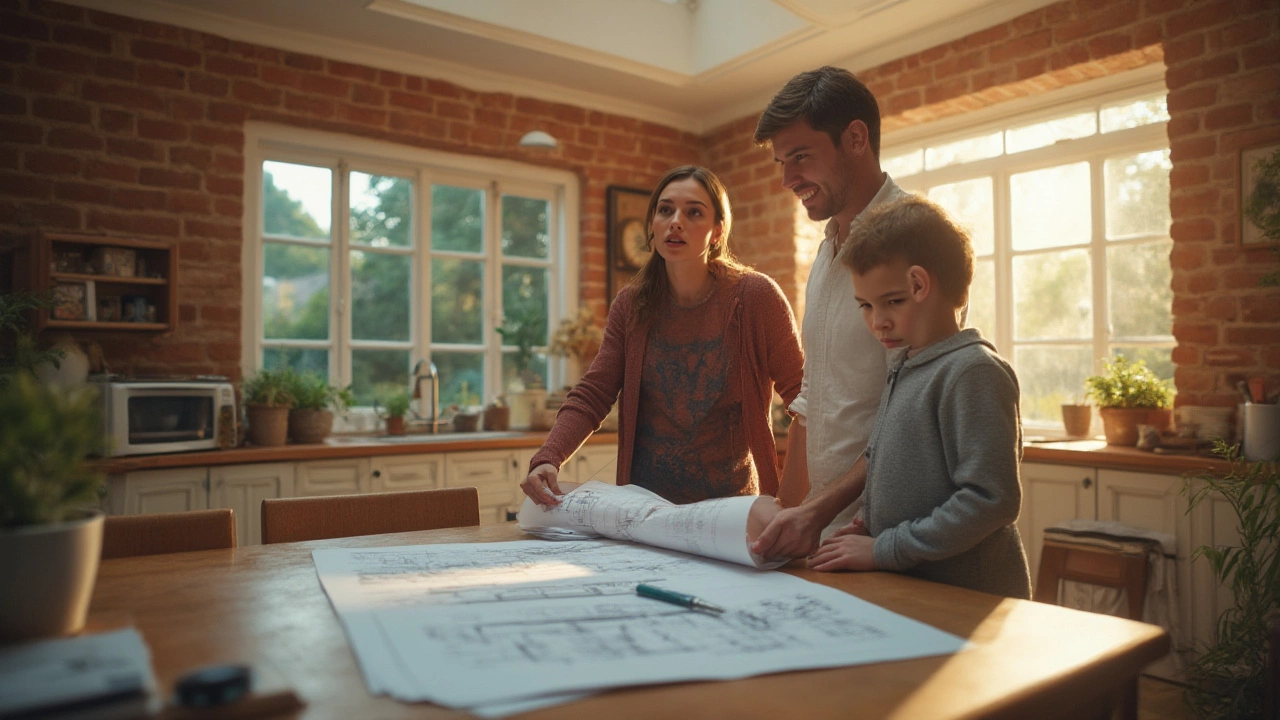Cost to Extend House: What You Need to Know
Thinking about adding a new room, a loft conversion or a side wing? The first question that pops up is always the price. In the UK, extending a house can range from a few thousand pounds for a simple bump‑out to six‑figures for a full‑scale addition. Knowing where the money goes helps you avoid nasty surprises later.
Key Factors That Influence Extension Costs
Location matters. Labour rates in London are higher than in the north, and the same goes for material delivery. Next, the size of the extension is a big driver – a 10 m² single‑storey kitchen will cost a lot less than a 30 m² two‑storey family room.
Structure plays a role too. If the existing foundation can support the extra load, you’ll save on foundation work. If not, you’ll need to dig deeper, pour new footings or use reinforced concrete, which adds a few thousand pounds.
Planning permission is another cost factor. Under Permitted Development rules you can often avoid the full planning application, but you still need to check height limits, side‑wall setbacks and any impact on neighbours. A planning consultant can charge £300‑£500, which is worth it if you want to be sure you’re compliant.
Finishes decide the final figure. High‑end kitchen units, stone countertops, double‑glazed windows and premium roofing can double or triple the base cost. On the other hand, opting for off‑the‑shelf joinery, laminate floors and standard tiles keeps the budget tight.
Tips to Keep Your Extension Budget in Check
Start with a clear brief. Sketch what you need, list essential features and rank the rest as nice‑to‑have. This makes it easier to cut non‑essential items when quotes come in.
Get at least three detailed quotes. Ask each builder for a breakdown – labour, materials, waste removal and any subcontractor fees. Comparing line‑by‑line shows where prices differ and where you can negotiate.
Consider the cheapest building methods. Modern timber frame, modular panels or prefabricated sections can shave 10‑15% off a traditional brick build. Our recent article on the cheapest building methods of 2025 explains how these options work.
Reuse existing structures where possible. If you can retain the current roof line, keep existing walls or transform a loft space, you save on new foundations and roof work.
Plan for a 10‑15% contingency. Unexpected ground conditions, supplier delays or design tweaks happen. Having a buffer prevents the project from stalling.
Finally, think long‑term. A well‑insulated, energy‑efficient extension may cost a bit more upfront but reduces utility bills and adds resale value. The extra spend often pays for itself within a few years.
Bottom line: a typical UK house extension costs between £12,000 and £50,000, depending on size, location and finish level. By understanding the cost drivers, getting clear quotes and choosing smart building methods, you can keep the price under control and end up with a space you love.

